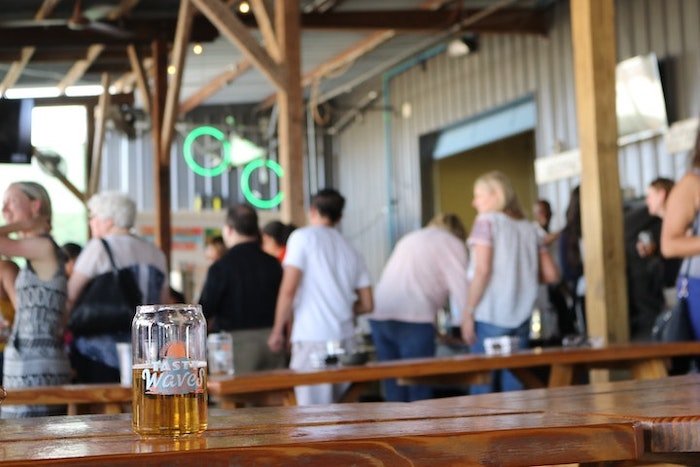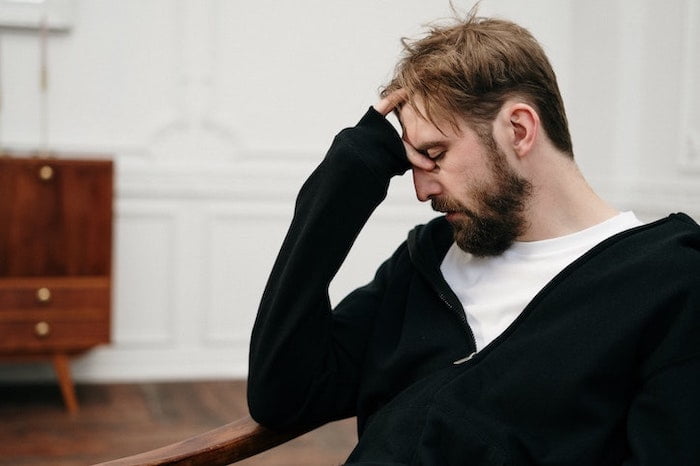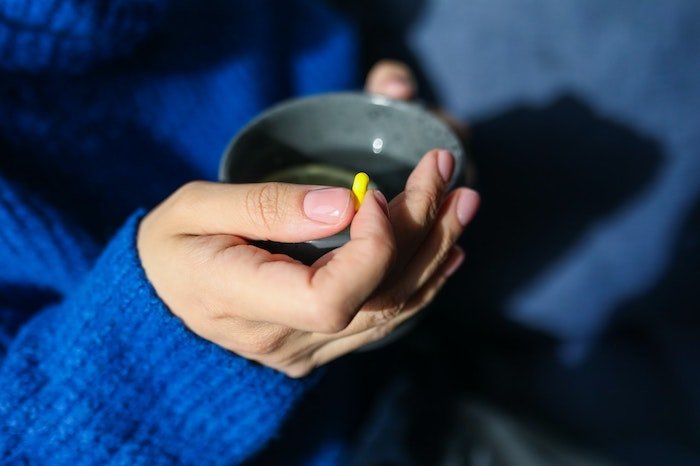If you think that either yourself or someone you care about is suffering from a drug or alcohol addiction in Wembley and would like to seek treatment, then rehab can be an extremely effective way of overcoming an addiction.
In this article, we have outlined some of the key points to consider when deciding on whether to enter into drug and alcohol rehab in Wembley: cost, duration, types of treatment and aftercare support.
To get your recovery journey started, call our team on 0800 326 5559
Alcohol Addiction Statistics iIn Wembley

The level of drug and alcohol misuse throughout Wembley and the Brent borough is higher than the London and national average, especially regarding opiates and crack.
There are an estimated 3,169 alcohol addicts in Wembley and Brent, of which 272 of them were receiving treatment in 2020.
The median range of adults in alcohol treatment in 2020 was 40–59.
Rates of alcohol-related hospital admissions in Wembley and Brent are higher than the national average.
The typical length of time for alcohol addiction treatment in Wembley is one-to-three months.
The number of people who access treatment in Wembley and Brent and ‘drop out’ before completion is lower than the national average.
Please call our 24-hour helpline on 0800 326 5559
Drug Addiction Statistics In Wembley

There are an estimated 2,310 opiate or crack users in Wembley and Brent, of which 818 of them were receiving treatment in 2020.
In 2020, over 50% of all routes into treatment for drug addiction in Wembley and Brent were on a self-referral basis.
The majority of opiate users who received treatment spent under two years in substance misuse treatment, such as rehab.
Over 23% of those in contact with mental health services in Wembley were also in contact with substance misuse services.
Successful completion rates of treatment for drug and alcohol addiction in Wembley and Brent is higher than the national average.
To learn more about addiction in Wembley, please call our 24-hour helpline on 0800 326 5559
Are There Signs That You Need To Go To Drug And Alcohol Rehab In Wembley?

People who are addicted to drugs or alcohol often don’t want to admit that they are struggling, and so they ignore the signs that they need help. This only delays your treatment and draws out your suffering.
If you are addicted to drugs or alcohol, it’s important that you know when to seek help. Addictions don’t happen overnight, so it can sometimes be a long time after you began to drink alcohol or take drugs before the signs begin to show in your behaviour.
However, when you are showing the signs of an addiction, it’s time to find a treatment that can help you overcome it.
The most common signs of an addiction include:
- Mood swings
- Increased temper
- Paranoia
- Disrupted sleep patterns, including insomnia
- Tiredness
- Defensiveness
- Agitation or irritability
- You find it hard to relax before the first drink or drug of the day
- You find it hard to focus or concentrate
- You’ve lost interest in something that would have normally excited you
- Poor performance and/ or attendance at work
- Low self-esteem and lack of self-worth
If you recognise any of these signs in your recent lifestyle or behaviour, then there is a good chance that you are addicted to drugs or alcohol. It’s important that you seek help at a drug and alcohol rehab in Wembley to take back control of your life.
Please call our 24-hour helpline on 0800 326 5559
Why Should You Consider Going To Drug And Alcohol Rehab In Wembley?

Asking for treatment may sound like a daunting step to you, but it’s a step worth taking. Your addiction is slowly but surely taking a huge toll on your physical and mental health.
Please call our 24-Hour Helpline on 0800 326 5559
Intervention

Staging an intervention for someone you care about can be a huge milestone in not only their lives but their road to recovery. Knowing this can make planning an intervention feel overwhelming and risky if you get it wrong.
However, if you have thought about holding an intervention in Wembley for someone that you know who is suffering from a drug and alcohol addiction, then the information in this article may help you gain a foundational understanding of what it takes to run a successful intervention.
If you have never been involved with intervention before, scenes of people standing around in a circle reading from a piece of paper may come to mind.
However, an intervention can take many different forms. The important thing to keep in mind when planning your own intervention is that you should make it work for the person you are holding it for.
Rather than having a room full of friends or family, you could open the invitation out to other people who have either experienced the consequence of their actions from the drug and alcohol addiction, or community stakeholders who have seen it all before. Some examples include:
- Friends and relatives
- Supportive work colleagues
- Doctor or addiction specialist
- Faith leader
Why Is An Intervention Necessary?

The overarching goal of an intervention is for the drug or alcohol sufferer to realise the impact their addiction is having on their life and of those around them, whilst also educating them on the treatment options available, such as drug and alcohol rehab in Wembley.
Having so much information being thrown around, as well as the realisation of their actions, can cause someone to feel intense emotions: fury, embarrassment or sadness.
This may be the first time that they confront their drug and alcohol addiction, and this can lead to the intervention process straying off course.
To help keep things on track to achieve the goal of the intervention, there are some basic principles to follow when planning your intervention for a drug and alcohol addiction in Wembley.
The first thing to remember is that you are not the first person to ever plan an intervention, and you won’t be the last. There are organisations in the Wembley area that specialise in holding interventions for drug and alcohol addictions.
They will be able to talk you through what they have learnt from previous interventions as well as best practices from academic research in the field.
Some organisations may even offer to attend the intervention and help mediate the process as independent stakeholders.
Inviting the right people to the intervention is a crucial step in the planning process. As we have already mentioned, the individual who is suffering from drug and alcohol addiction may have intense outbursts during the intervention.
This means that the people involved in the day need to be able to remain calm and not be drawn into any heated outbursts or arguments that may be provoked.
The intervention is to help the addiction sufferer, and everything must be centred around helping them find treatment.
And finally, do your research. Once you have assisted the drug and alcohol sufferer come to the realisation of their addiction, the intervention should be focused on the treatment options available.
Treatment can take many forms and durations, but one of the most effective treatment options is rehab. The one suffering from the addiction may never have thought about going into a drug and alcohol rehab in Wembley before.
Therefore, It is important to have all the information needed about drug and alcohol rehab in Wembley.
For more help about hosting an intervention in Wembley, call our team on 0800 326 5559
How Do I Know I’m Addicted?

It can be a challenge to identify if someone you know is suffering from a drug or alcohol addiction, or even if you are suffering from one yourself.
Many people see their behaviours and actions as within their control and ‘normal’, especially if the substance misuse has been over a prolonged period of time.
If you are unsure whether you are suffering from a drug and alcohol addiction, then a good place to start is by answering a CAGE questionnaire.
CAGE questionnaires are used by addiction specialists and health professionals to assess if someone is suffering from a drug and alcohol addiction and, if so, how severe it is.
The questions have been designed to be simple enough that they can be performed as a self-assessment and then used to form a discussion with your GP.
The questions focus on the level of substance consumption and how this makes the sufferer feel. The questions below focus on alcohol but can be altered to focus on drugs instead:
- Do you feel the need to cut down on how much you drink?
- Have you ever felt angry or annoyed when someone else told you to cut down on your consumption or commented on how much you drink?
- Have you ever felt guilty about how much alcohol you drink?
- Have you ever started drinking in the morning to get yourself up?
If you think you might be suffering from a drug or alcohol addiction in Wembley, then you should take part in a self-assessment to get an understanding of your current situation.
If you are unsure if somebody you know is suffering from a drug and alcohol addiction, then it could be a good idea to introduce them to the CAGE questionnaire during an intervention.
For more guidance about answering addiction questionnaires, call our team on 0800 326 5559
How Much Does Rehab Cost In Wembley?

There is no singular price for admission into a drug and alcohol rehab in Wembley, as the price is determined by a wide variety of factors that will be specific to your unique circumstances.
The main factors that determine the cost of drug and alcohol rehab in Wembley are the type of treatment, duration of treatment and the type of facility.
The type of treatment you can receive within drug and alcohol rehab in Wembley falls into two categories: Inpatient or outpatient.
Whichever one of these two is most suitable for you will have a huge impact on the cost of your overall rehab treatment.
Being an inpatient in Wembley means that you will be a resident in the rehab facility whilst you undertake your treatment for drug and alcohol addiction.
The cost of this type of treatment will cover 24/7 staffing costs, room fees and all the extras that come with being a resident.
Room fees can vary between private rooms or shared accommodation. For a private room in a drug and alcohol rehab in Wembley, the average price range is between £3,000 and £6,000 for a ten-day treatment period.
The same treatment within a shared room brings the price down to £2,000 – £4,000.
The reason for quoting a ten-day period is because that is the typical minimum duration for a stay in drug and alcohol rehab in Wembley.
Rehab treatment can, and usually does, stretch beyond the ten-day period, usually lasting for a 28-day period in Wembley. The typical cost for 28-days in drug and alcohol rehab in Wembley is £12,000 for a private room or £6,000 for a shared room.
For some people, outpatient treatment will be more appropriate for their circumstances. This usually entails a drug or alcohol addiction sufferer being treated at home with regular visits to the rehab facility in Wembley to receive treatment.
Due to the lack of room costs associated with this type of treatment, the price of treatment is hugely reduced and a lot more affordable for most.
However, as we will discuss later in the article, outpatient treatment is not suitable for everyone.
Even though all drug and alcohol rehab centres have the same objective in mind for aiding a patient’s recovery from addiction, the quality of drug and alcohol rehab in Wembley varies between facilities.
Some facilities are more expensive and luxurious than others depending on the type of client they are trying to attract.
This could be down to the physical location of the rehab centre in Wembley, the quality and qualifications of the staff, and the selection of treatments available.
For a more accurate estimation of how much rehab will cost you, pease call our 24-hour helpline on 0800 326 5559
Is Drug And Alcohol Rehab In Wembley Covered By Health Insurance?

It is possible to fund your drug and alcohol rehab in Wembley through a private health insurance provider, such as AVIVA or BUPA.
Many health insurance providers offer coverage for rehab treatment for drug and alcohol addiction to existing customers.
If you are not currently covered by a health insurance policy and think that you will need to enter into drug and alcohol rehab in Wembley soon, then raise this with a health insurance broker to see what can be done.
If you do have health insurance already and are not sure if you are covered for rehab treatment in Wembley, then there are a few things you can do to check this with your current provider.
A few things that you will need to review within your insurance policy document are the level of cover, exclusions, the personal excess amount, and if the provider holds any restrictions over the facilities you can access.
If you are still unsure if your health insurance policy will cover your treatment, then it is best to call them up and ask the following questions:
- Does my cover include inpatient rehab treatment?
- Am I restricted in how long I can stay in rehab?
- Can I access any rehab medications?
- Are both options covered for inpatient and outpatient treatment?
- Is my particular addiction (alcohol/drug) covered?
Knowing that your health insurance provider will cover the cost of your treatment can lift a huge weight off your shoulders. If this is the case, make sure to let the rehab facility know that your insurance is picking up the bill.
This is so that they know who to contact if there are any issues with payment.
If you do not have health insurance and would like to seek out a provider to cover the cost of treatment for drug and alcohol rehab in Wembley, then contact a health insurance broker and ask them for information on your options.
Alternatively, for advice and support contact our team on 0800 326 5559
Is Drug And Alcohol Rehab On The NHS?

If you aren’t able to access drug and alcohol rehab treatment through a health insurance provider, another option could be to be referred to drug and alcohol rehab in Wembley through the NHS.
It can come as a surprise to people to learn that the NHS does not own any rehab facilities themselves. Instead, the NHS will fund the treatment in a private rehab facility in Wembley as part of a wider NHS contract.
This will not have a huge impact on your level of treatment for drug and alcohol addiction, as you will be treated in the same facility as private paying patients.
This is an affordable option for those who could not otherwise fund themselves through treatment. However, there are some restrictions to an NHS referral.
Waiting lists can be long, NHS rehab spaces can be limited and treatment options can be restricted in some facilities.
Rehab facility providers in Wembley will only offer a limited proportion of their available beds to NHS-funded patients, which can increase the waiting time for inpatients.
It is not uncommon for drug and alcohol addicts to be waiting months for admission into drug and alcohol rehab.
The NHS may not be appropriate if you wish to be seen by a certain doctor or receive certain medication. Some doctors exclusively treat private funding patients, even if there are NHS patients in the rehab facility.
For more information aout chossing between private and NHS-funded rehab, call our team on 0800 326 5559
How Long Does Rehab Last?

Rehab treatment is personalised to each individual that is admitted into rehab. Nevertheless, there are some standard time periods within most treatment plans for drug and alcohol rehab in Wembley, which will be covered for most substances.
Most drug and alcohol rehab treatment includes treatment for the physical addictions that the substance has on the body and psychological treatment for the mental effects of addiction.
If the drug or alcohol that you are being treated for is classed as a physically addictive substance, then you will typically undergo a physical detox. This form of detox usually lasts ten days and is the first stage of rehab treatment.
Following that, you will be treated for the psychological aspects of your drug and alcohol addiction, which can take between 2-3 weeks.
A 28-day stay in a Wembley rehab facility is typical for moderate to mild addictions. However, If your drug and alcohol addiction is severe, then your stay could last up to three months.
For a more accurate estimate as to the length of time on your treatment, call us on 0800 326 5559
How Is Your Addiction Affecting Your Physical Health?

Doctors view alcohol as essentially a poison, while drugs can rework the chemicals in your brain to the point that your body can’t function properly without you repeatedly taking them.
Alcohol and drugs have been linked to several serious, even fatal health issues, including:
- Weight gain
- High blood pressure
- Strokes
- Heart attacks
- Cirrhosis of the liver
- Lung disease
- Lung cancer
- Stomach cancer
- Mouth cancer
- Breast cancer
Injecting drugs into your system can also lead to infections and skin breakdown around the injection site.
In England, alcohol was recorded as the main factor in 358,000 hospital admissions and 7,551 deaths. In the same year, drug poisoning resulted in 18,053 hospital admissions and 2,917 deaths.
Treatment at drug and alcohol rehab in Wembley won’t reverse any damage that’s been done to your physical health. However, it will prevent further harm and give your body and mind a chance to heal. This allows you to look toward a healthy and happy future.
Please call our 24-hour helpline on 0800 326 5559
How Is Your Addiction Affecting Your Mental Health?

Your addiction to drugs or alcohol is also harming your mental health, which affects the quality of your life.
People often begin drinking or taking drugs as they struggle to cope with mental or emotional distress. This can include grief, trauma, managing life-changing injuries, stress, anxiety, or depression.
However, drugs and alcohol don’t really help you deal with these issues – they just delay coping with them while making them worse at the same time.
You become trapped in a vicious cycle of poor mental health, making you want to drink more or take more drugs, which in turn worsens your mental health, leaving you stuck with your substance abuse and poor mental health fueling each other.
It may feel impossible to free yourself from this cycle, but drug and alcohol rehab in Wembley can help you change your everyday lifestyle and perspective so that you can cope with challenges without becoming dependent on these substances.
Your addiction is also harming your mental health by putting a strain on the relationships in your life.
People who are struggling with an addiction are often secretive and dishonest with their friends and family about their substance intake. They may also prefer to stay indoors and withdraw from socialising.
If you have developed these behaviours, then you are likely struggling with low self-esteem and may have even lost interest in your physical appearance.
When relationships with friends and family are broken, you may also feel lonely. This can be incredibly dangerous to your mental health as it increases the risk of suicidal thoughts.
The treatment you’ll receive at drug and alcohol rehab in Wembley will introduce you to positive coping mechanisms and behaviours that can help you live your life without drugs or alcohol.
For advice and support, please call our 24-hour helpline on 0800 326 5559
Inpatient Or Outpatient Treatment In Wembley

Alcohol and drug rehab in Wembley will either consist of inpatient or outpatient treatment.
Being an inpatient means that you will be a temporary resident in the rehab whilst receiving treatment for your addiction, whereas being an outpatient means you will remain at home during your treatment and attend the rehab facility for set appointments.
Outpatient treatment can be an attractive option as the cost of outpatient treatment in Wembley is far less than inpatient treatment due to the lack of associated costs that come with being a temporary resident.
However, to successfully complete a course of outpatient treatment in Wembley requires a high amount of self-motivation as the treatment will largely be unsupervised.
Beating a drug and alcohol addiction whilst remaining in the same environment that you would normally indulge in the substances can be too much for people, and therefore inpatient treatment would be more appropriate.
Similarly, the severity of your alcohol and drug addiction will be more appropriate for either inpatient or outpatient treatment.
Typically, mild to moderate addictions are more appropriate for outpatient treatment, whereas for those with more severe addictions who are still taking part in drug and alcohol use, inpatient treatment will be recommended.
For guidance on choosing between inpatient and outpatient treatment, call our team on 0800 326 5559
Alcohol Detox & Rehab In Wembley

If you want to undergo rehab treatment for your alcohol addiction in Wembley, then you will need to complete alcohol detox.
Alcohol is a physically addictive substance, meaning your body is physically addicted to alcohol and will crave it when it is withdrawn. Therefore, detox is required for treatment to be effective.
Alcohol withdrawal is a physically demanding and unpleasant period of treatment, more for those with a severe addiction.
The symptoms that come from this period can range in intensity and duration, including:
- Seizures
- Vomiting
- Anxiety
- Insomnia
- Hallucinations
You will be supported through this period by the staff at the drug and alcohol rehab in Wembley, who will have been through this treatment before. If you are nervous or worried about the detox, speak to the rehab team for more information.
To learn more about alcohol addiction treatment in Wembley, call our support team on 0800 326 5559
Rehab For Cocaine In Wembley

Cocaine is a highly addictive and dangerous drug that presents many signs and symptoms, including:
- Rapid heart rate
- Loss of appetite
- Swings in mood
- Paranoia
- Nose bleeds
If you think that you have a cocaine addiction, then you may need to attend a drug rehab in Wembley.
Cocaine has many damaging, long-term health consequences if not treated, such as an increased risk of a stroke, loss of smell and high blood pressure.
If you enter drug and alcohol rehab in Wembley for your cocaine addiction, it is unlikely that you will need to undergo an initial detox period. Cocaine is not a physically addictive substance like alcohol, but it is a psychologically addictive drug.
Therefore, the focus of your rehab treatment will be on the mental elements of the addiction.
To learn more about cocaine addiction treatment in Wembley, call our support team on 0800 326 5559
Rehab For Heroin Rehab In Wembley

Heroin is an incredibly dangerous drug that can destroy lives if left untreated. Not only is heroin highly potent, but it is also common that heroin users to take the drug in conjunction with another substance, which can lead to serious illness or death.
Signs and symptoms of heroin addiction include:
- Rapid weight loss
- Memory loss
- The inability to function
- Change in behaviour towards stealing or lying
If you think that you are addicted to heroin, then you may need to attend drug rehab in Wembley.
Heroin is a physically addictive drug and will require a detox period in the rehab centre. After the detox period, doctors will utilise therapy sessions to help overcome the psychological damage that heroin has inflicted.
To learn more about heroin addiction treatment in Wembley, call our support team on 0800 326 5559
Rehab For Cannabis In Wembley

Despite an uptake in the use of this drug across some countries and states, cannabis can cause serious long-term damage to your health and impact your quality of life.
Symptoms of a cannabis addiction include:
- Paranoia
- Anxiety
- Depression
- Loss of motivation
- Bloodshot eyes
- Hallucinations
- Paranoia
If you think that you are addicted to cannabis, then you may need to attend a drug rehab in Wembley.
If cannabis use goes untreated for a long period of time, it can lead to further complications such as schizophrenia, anxiety and psychosis.
This then has a knock-on effect in other areas of life and can lead to a breakdown in relationships and even job loss.
Cannabis does not require a withdrawal period and patients will usually go straight into psychological treatment.
To learn more about cannabis addiction treatment in Wembley, call our support team on 0800 326 5559
Types Of Therapies On Offer In Wembley Rehabs

Therapy is an overarching term for what can be a huge field of different methods that focus on the psychological elements of addiction.
A popular therapy approach for drug and alcohol rehab in Wembley is Cognitive Behavioural Therapy (CBT). This usually involves sitting 1-1 with a therapist and exploring the thoughts and behaviours that are associated with your addiction.
Additionally, Twelve-Step Facilitation Therapy (TSF) is a therapy strategy which focuses on a user accepting their addiction, surrendering themselves to a higher power, and getting involved in 12-step meetings and help groups.
These are just a couple of the most popular forms of therapy offered at drug and alcohol rehab in Wembley.
For more information about treatment options in Wembley, call us today on 0800 326 5559
The Importance Of Dual Diagnosis For Co-occurring Disorders In Rehab

Dual diagnosis is a common occurrence within drug and alcohol addiction as many people suffering from a mental health problem turn to drugs or alcohol as a way to cope, and long-term drug and alcohol addiction can develop into a mental health problem.
Receiving a dual diagnosis means that your rehab treatment will look to treat your substance addiction and mental health issues simultaneously but separately, as the causes may not be the same.
It is important to know if you have a dual diagnosis to increase your chances of success in rehab. Your treatment plan will need to be tailored to treat the causes and behaviours.
Please call our 24-hour helpline on 0800 326 5559
How Rehabs Help With Relapse Prevention

Drug and Alcohol Rehab in Wembley will offer you the foundations for a brighter and happier future when you finish your addiction treatment.
Rehab is only the start of this journey, and the rehab team will work with you to create a relapse prevention plan to decrease the likelihood of slipping into old habits.
A relapse prevention plan is a personalised document which you will be able to use during times of temptation, as it will include all your learnings from rehab and useful tips on how to stay sober.
Please call our 24-hour helpline on 0800 326 5559
What Can You Expect At A Drug And Alcohol Rehab In Wembley?

Your treatment will be designed to your recovery needs and will be made up of three parts: detox, rehabilitation and aftercare.
Detox
You’ll begin your time at drug and alcohol rehab in Wembley with a ten-day-long detox programme.
While detoxification can be a challenging part of your recovery, it’s the most important as it allows you to be able to go through the following stages of your treatment.
Detox is when your body is cleansed of the substance you’ve been addicted to. As your body has depended on drugs or alcohol, it will have to re-learn how to function without them. This can cause withdrawal symptoms.
Withdrawal symptoms can range from mild to severe, but this will depend on your addiction. The most common withdrawal symptoms can include:
- Mood swings
- Changes in appetite
- Congestion
- Fatigue
- Irritability
- Restlessness
- Runny nose
- Muscle pain
- Shakiness
- Sweating
- Tremors
- Seizures
- Hallucinations
- Delirium
You will do your detox with the help of a medical professional. They will monitor your pain levels and make sure your detox is as safe and successful as possible.
To learn more about detox in Wembley, call our team on 0800 326 5559
Rehabilitation

Once your head and body have been cleared from the effects of drugs or alcohol, you will continue your treatment with rehabilitation. This step of your recovery will focus on the mental aspects of your addiction.
At OK Rehab, we believe that treatment for your addiction should help you recover for the rest of your life, giving you the best chance of avoiding relapse.
That’s why rehabilitation will involve therapeutic treatments that will introduce you to flexible and progressive ways of thinking and behaving. With this, you will be in a stronger position to cope with challenges and change without needing drugs or alcohol.
Talking about your addiction can be a difficult part of treatment, but it can be the difference between a successful recovery and a potential relapse. By talking, you’ll learn more about yourself and why you became addicted.
The most common therapeutic therapies used when helping people recover from their addiction include:
- Individual Therapy
- Group Therapy
- Contingency Management
- Family Therapy
- Cognitive Behavioural Therapy (CBT)
- Acceptance and Commitment Therapy (ACT)
- Holistic Therapies
- Acupuncture
These therapies aim to help you adjust your thinking process and the way you speak to yourself, which can then alter your behaviour.
By becoming more aware of how you think and act, you’ll be able to make better decisions to live a happy, healthy, and fulfilling life.
To learn more about rehab in Wembley, call our team on 0800 326 5559
Aftercare

Once you have completed your treatment, you will return home. While this can be exciting and rewarding, it can also make you feel anxious.
After all, you’ll once again have access to drugs and alcohol, and you’ll be facing the same triggers that led to your addiction.
Going home can be when your recovery from addiction is most at risk, so you will be assisted with returning to home life through aftercare sessions.
These sessions will be available to you at your drug and alcohol rehab in Wembley. They typically include further therapy (both individual and group) and 12-step meetings.
There are many aftercare and support services in Wembley, including:
- Alcoholics Anonymous and Narcotics Anonymous
- Outpatient treatment
- Al-Anon Family Group meetings
- SMART Recovery
- Home Detox
With aftercare sessions, you’ll have access to a supportive and encouraging network, which will help you maintain your sobriety.
To learn more about aftercare in Wembley, call our team on 0800 326 5559
Contact OK Rehab Today

People struggling with an addiction may feel embarrassed or ashamed about asking for help. However, our team at OK Rehab are welcoming, friendly and empathetic.
In fact, we’ve gone through our own recovery journeys and share similar experiences with you. That’s why we’re eager to help people with addictions begin their journey to recovery.
When you contact OK Rehab, we’ll do our best to find the right treatment at a drug and alcohol rehab in Wembley for you.
You can call us on 0800 326 5559. You can also send us a message on our online form.
Please call our 24-hour helpline on 0800 326 5559





